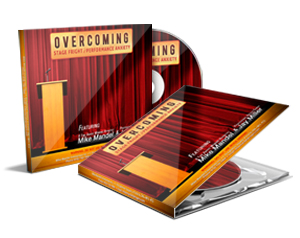Professional Credibility
Jennifer is in her early thirties, smart, talented and very effective in her role as account manager for a large marketing firm. She’s bubbly, talkative and tends to speak and move at a fast pace. She projects youthful energy and under pressure might seem a bit nervous.
Despite her experience, her excellent performance and high potential, Jennifer often struggles to win the respect of new clients and exert the kind of influence she desires, especially in the early stages of the relationship. People tend to assume she’s young and therefore inexperienced so they underestimate her level of expertise. Her input is sometimes ignored or dismissed; she’s not entrusted with important projects and misses strategic opportunities for advancement.
Jennifer has a credibility problem. If you can relate to her situation or something similar, you might want to consider ways to address that issue.
The perception of credibility is admittedly subjective and not always accurate. But it’s formed very early in the interaction and determined at a subconscious, emotional level more than at a conscious rational level.
Here are some personal attributes you can cultivate to make sure you’re projecting an image that communicates substance and authority.
Be grounded. Feel the ground underneath you and relax down onto that firm foundation. When you’re not aware of grounding, your body tends to pull itself away from the ground. You project a physical presence that’s high and tense, not relaxed and settled. People get the feeling that you’re a lightweight.
Be aligned. Take advantage of your full height. I’m not talking about “chin up, chest out, shoulders back and belly in.” That just makes you tenser, and it certainly doesn’t look relaxed and authentic. This needs to be a relaxed alignment, not a forced posture. Stand on both feet and imagine allowing your ankles, knees, hipbones, shoulders and ears to be on a vertical line.
Speak up. Engage your voice fully so people can hear you easily. Few things destroy credibility faster than a weak voice. You don’t have to push and shout; that just sounds like you’re trying too hard or that you’re overbearing. Breathe deeply before speaking and use your breath generously to produce the sound. If you have breath left over at the end of a phrase or sentence, you’re holding back, and your listeners will feel that reticence.
Cultivate depth. A relaxed, grounded voice has resonance and richness that communicates strength, confidence and authority. A voice that’s stuck in the throat sounds defensive and withdrawn. If it’s pushed into the face and head it sounds young and abrasive. You don’t need to speak at the very bottom of your range. It’s not about having a low pitch. It’s about speaking with your whole body, not just your mouth and throat.
Take your time. Cultivate a deliberate manner of speech and gesture. If you speak and move quickly you lack presence and gravitas. You seem rushed, nervous and disconnected. When you’re able to pause and deliver your message in a relaxed manner you appear confident and in charge. You make fewer mistakes and your listeners have time to absorb what you’re saying. The overall impression is much more powerful.
Be brief. Learn to state your point clearly and directly—and leave it at that. Using too many words to express your thoughts makes you seem scattered. Repeating your point too many times makes you seem insecure. Holding the floor for too long annoys your listeners and nullifies the point you’re trying to make. The ability to say much, with few words, is a priceless skill that commands deep respect.
Your ability to project credibility can make the difference between being ignored, overlooked and undervalued or being effective, respected and successful. Take time to consider which aspects of your persona communicate strength, substance and authority and which make you seem young, inexperienced and unsure of yourself. The improvements might require some time and effort, but their ultimate value will be significant and ongoing.
 The Sound of Success
The Sound of SuccessEnroll in this FREE video mini course and discover a powerfully attractive voice.
 Your Confident Voice
Your Confident VoiceThis 145-minute mp3 download is a complete speaking voice course. The simple but amazingly effective program is on sale this month!
 Overcoming Stage Fright
and
Overcoming Stage Fright
andPerformance Anxiety
On this mp3 download, Jay Miller teams up with six-time award-winning hypnotist Dr. Mike Mandel to deliver the most comprehensive program available for reducing or eliminating stage fright.